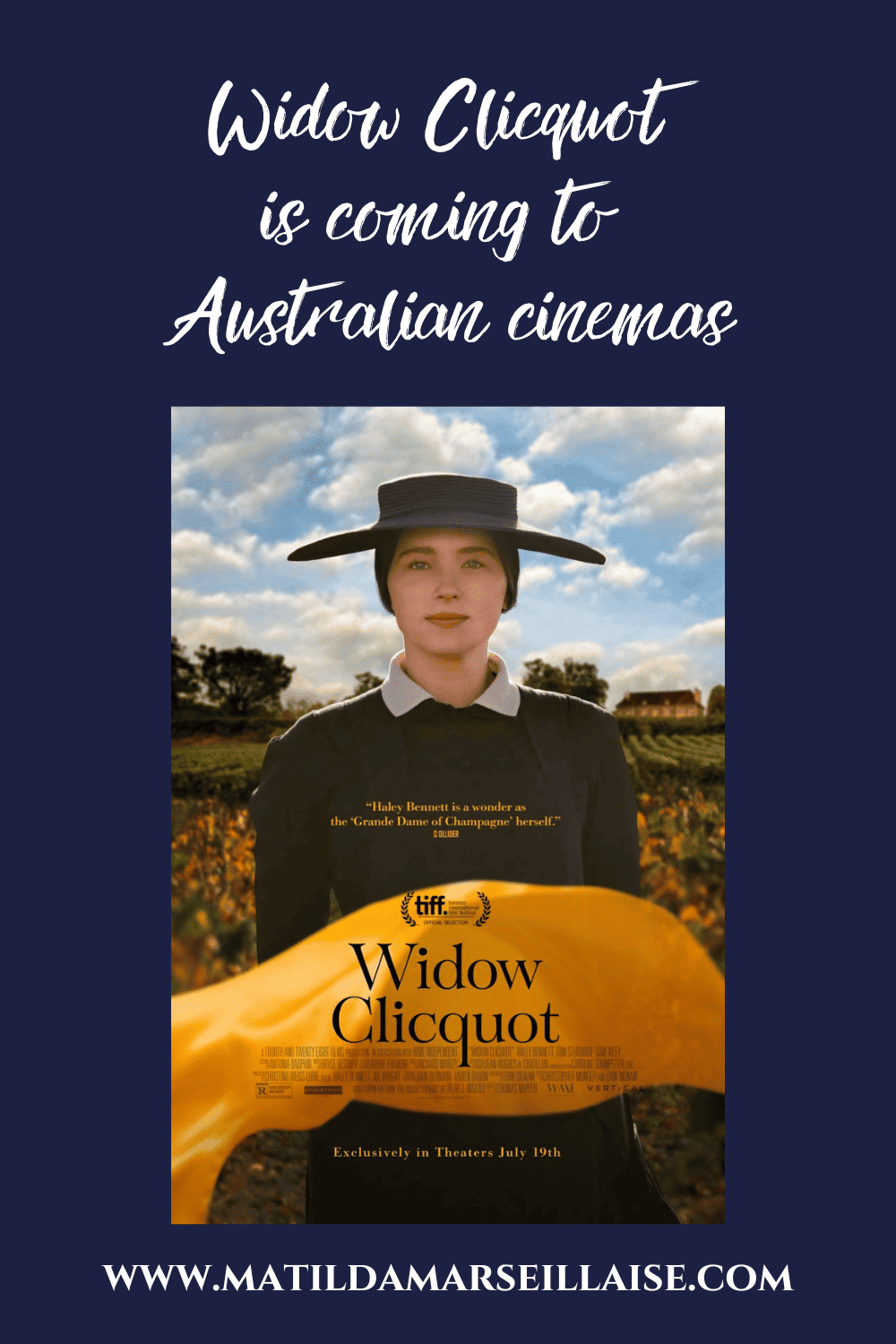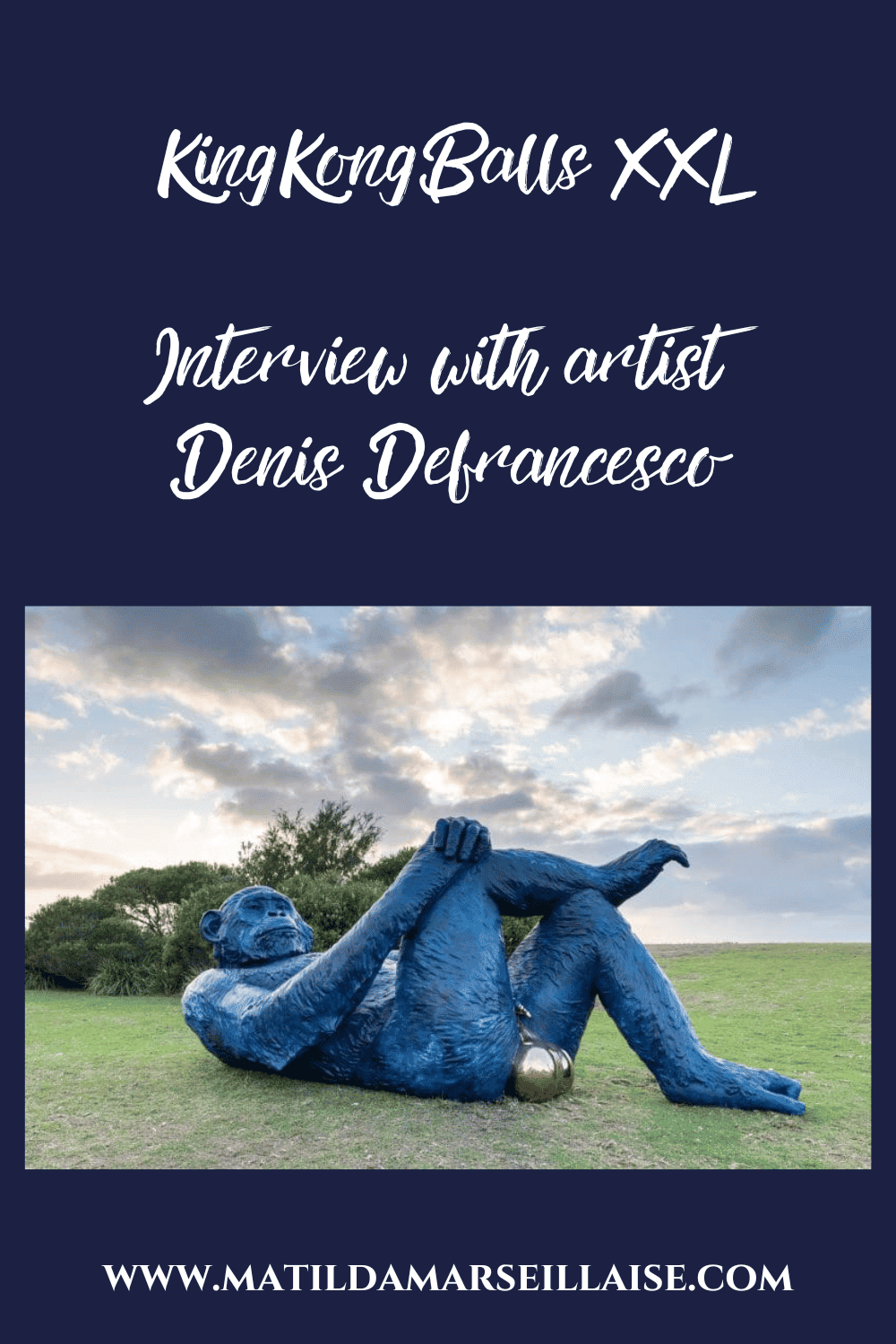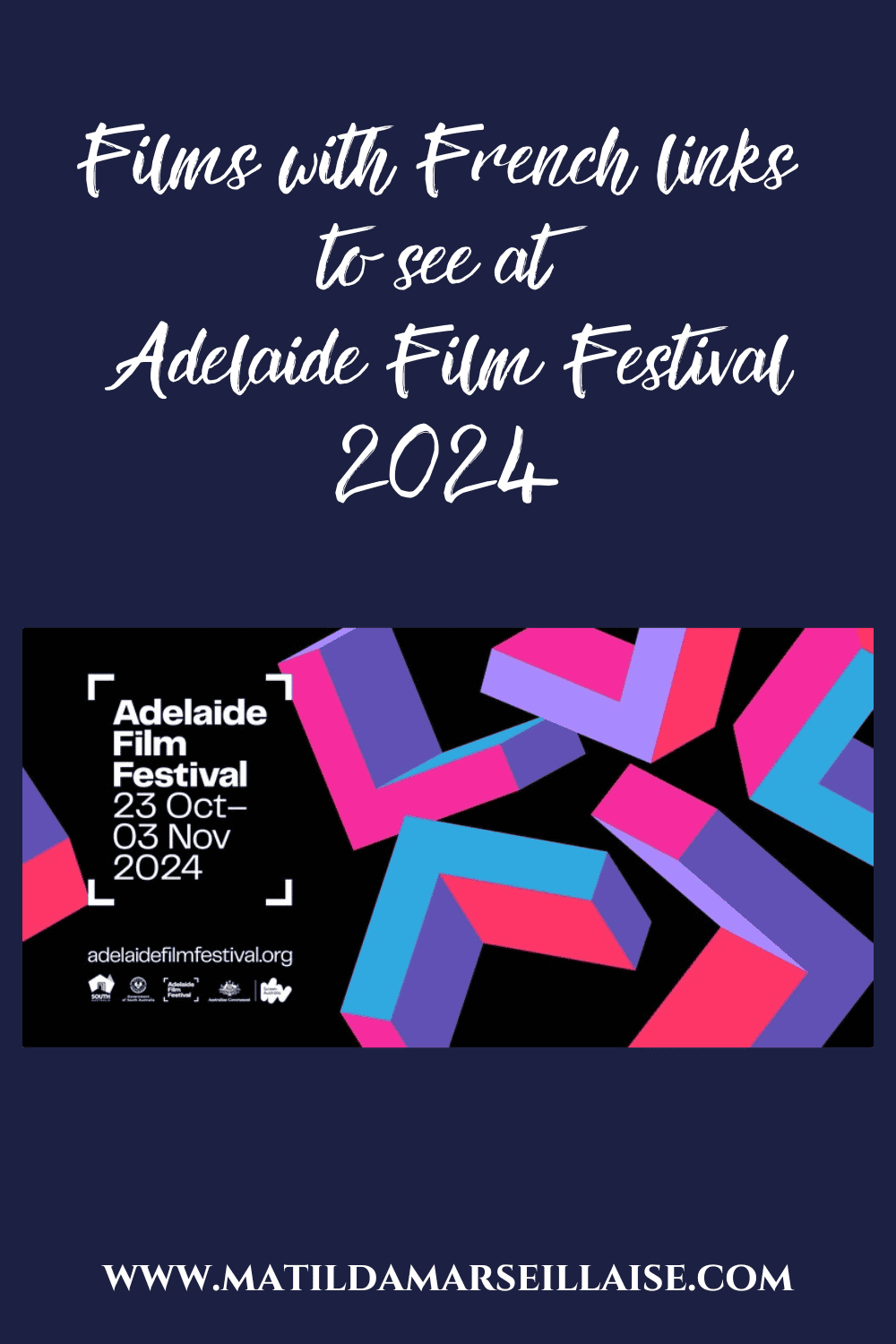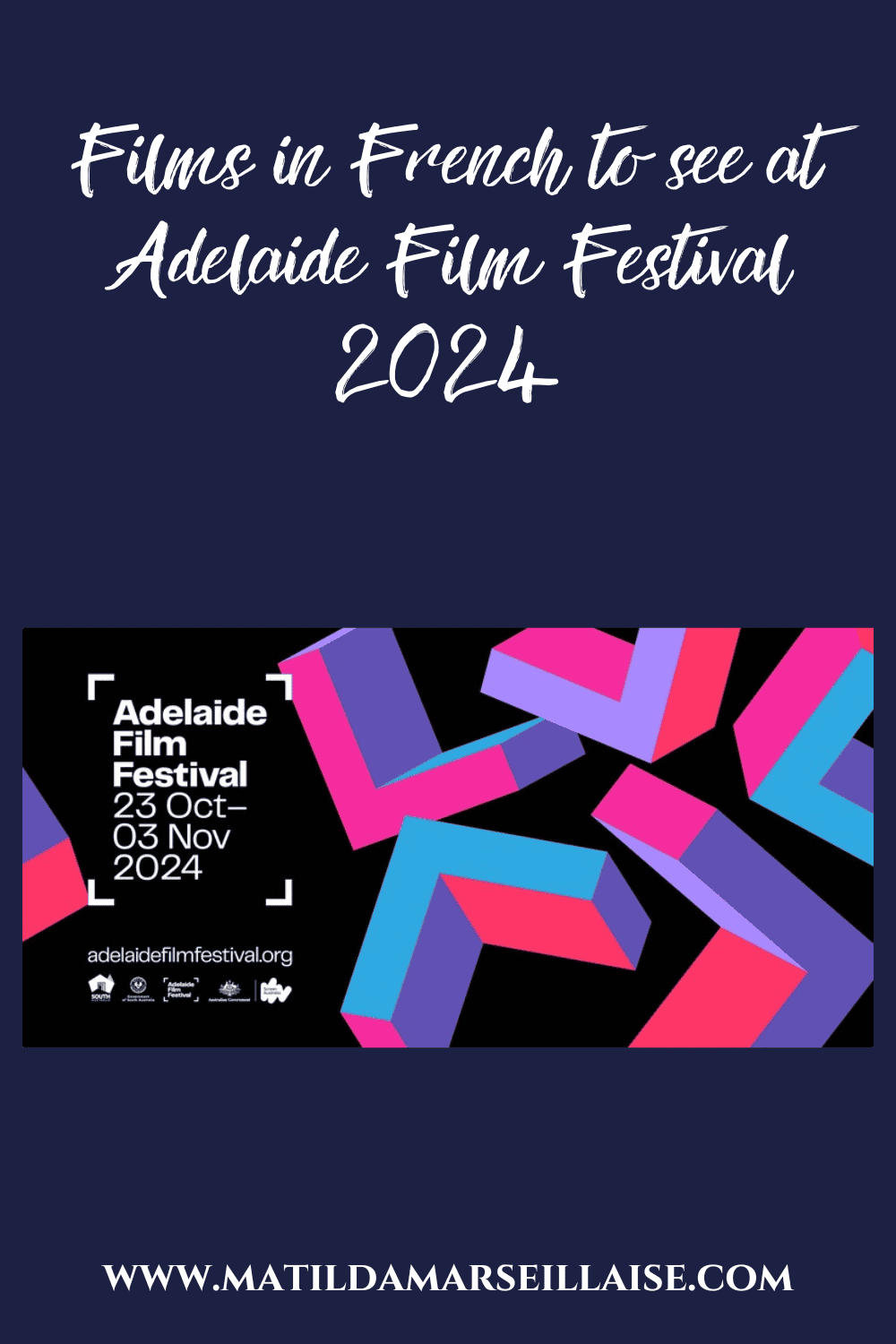Canadian dance and theatre company Corpus is bringing its sheep and singing goddesses to WOMADelaide for the first time with its productions Les Moutons (the sheep) and Divine Interventions. We spoke to David Danzon, founder of the company, about these two productions.

David Danzon, you founded Corpus in 1997. Can you tell us how it came about and how it has evolved over the years?
Corpus was actually the result of a meeting between a dancer-choreographer and an actor who wanted to explore directing, so to speak. I was interested in a physical approach to theatre, in other words in the language of the body. And Sylvie, the dancer-choreographer, was looking for a more theatrical approach to contemporary dance. So in the end, we each had what the other was looking for. So we started working together, creating, doing research, simply in the studio. And very quickly, we were creating shows together, and we also very quickly founded the Corpus company together. So that was 27 years ago. And this collaboration lasted about ten years at first, and then we separated after ten years. In fact we created two organisations together. There was Corpus and then a festival called Dusk Dances, a contemporary dance festival that took place in public parks.
It took place at sunset. And it became very popular here in Toronto, but we also started touring with it. We took it to several urban centres in Canada and so when we split up, in fact, we split up, the babies, she took the festival and I took Corpus. And that was that. So since 2008, I’ve been the sole artistic director of Corpus.
And you’re originally an actor?
Yes, by training?
So you also perform in your shows.
I often do. Not all the time. But often.
That’s good. It’s good not just to be behind the scenes.
It’s true that my initial interest was the stage, performing on stage. So that’s still a passion of mine. It’s true that as time went by, I became more involved behind the scenes. I’ve put myself more behind the stage than in front of it. But just recently, I created a show that was a solo for me, so it still happens.
It’s good because I think that if you have this desire, it must be a bit hard not to be in front of people.
Oh yes, absolutely. Yes, it’s true that even at the end, there are times when I’m no longer on stage or in front of the audience and I miss it. I miss it, that’s for sure.
LES MOUTONS
Where did the inspiration come from for the two projects you’ll be presenting in Adelaide, Les Moutons and Divine Interventions?
Well, Les moutons is a bit of a special show because we’ve already been doing it for 21 years.
Wow!
Yes. So, it’s a bit of an unlikely thing. We never thought it would last. In the beginning, it was a kind of experiment, an experimentation. We were both in the studio and what interested us wasn’t necessarily the animal, but the symbiotic relationship between a shepherd and his sheep. And we thought there was a parallel to be drawn between a couple’s relationship. So we had fun. I was the shepherd and Sylvie was the sheep. Then I was the sheep, she was the shepherdess, we changed roles and we thought at the time that this was going to be the starting point for a duo, a show. But we soon came up against a inspiration block and we couldn’t take the idea any further. So we almost gave up and moved on to something else.
And then at a certain point, we said to ourselves, maybe we should go and watch some sheep, maybe they’ll tell us how to go on with the show. And it turned out to be a very good idea, because that’s where it all started. From these observations, not just about the animals, but about the experience of being there. In other words, what interested me straight away was what was going on around the enclosure, the people watching the sheep and how they were behaving. And so right away there was the public relationship and the idea of making an installation came from there, with an enclosure. The surrounding public, and then trying to recreate the experience we had when we went.
There’s a farm here in Toronto. That’s where we made our observations and we thought it would be interesting to try and recreate that atmosphere on this farm as realistically as possible and trust that it would be enough, because for a long time we thought it was because nothing was happening. Generally speaking, when you look at sheep, there’s not much going on.
No, They eat, scratch, sleep.
And that’s it. So it became an interesting challenge to say, can we do a show with basically nothing? And that was 21 years ago that we started doing this show. I think it works because there’s a kind of mystery. And I confess I can’t quite figure it out myself. In other words, I’m still trying to figure out what this show is all about. And I think that’s why one, I still want to do it, and two, I think it’s quite successful. I mean, the reactions are so vast and the interpretations are so vast. Each performance is completely different from the other. There’s really room for improvisation, for the performers. But how the audience reacts is also completely random. You don’t know what’s going to happen. As a result, it’s really a show that’s set in the present. That’s true of any show, but I really feel that with this one, it’s even more pronounced this space in the present. And so, in fact, we spend half an hour in the lives of sheep, without commentary or winks..
No, just doing the things sheep do.
And that’s it. So, it’s very simple. The shepherd brings his flock of sheep into the pen and separates the males from the females. And then there are a few activities. There’s shearing, the sheep go to eat, they sleep, and then there’s lots of things to do, depending on the audience. So there are people who come to pet the sheep, who come to feed them or not, others who laugh, others who look for the political, social message behind it, others who behave violently, who will kick the sheep or pull their ears as they would do to real sheep. But that’s it.
That’s how we know who people truly are.
Yes, exactly. Exactly. And then there are the kids who are completely enthralled and ask questions like Mommy, are those real people? Not are they real sheep? But are they real people? These kinds of comments are always very interesting, and they’re what keep us going even now.
It must be weird to be in the role and hear the sometimes funny comments, I imagine, and not laugh.
Yes, of course it is. In fact, as you already know, it’s a very good acting exercise to be really 100% committed to the role of sheep. So we created a kind of sheep-acting technique. It’s all based on our observations of real sheep behaviour. And the actor has to really, really be a sheep. That’s what I always tell them: don’t try to play the sheep, but you are the sheep to the eyes, no matter what. And so, the performers often define it as a kind of Zen zone, a kind of pause, a meditation. They go into a kind of meditation and try to block out the comments they may hear or what may be going on, and really try to get into the sheep’s skin and only act like a sheep. So obviously, it’s a big challenge for them. But what’s interesting is that with each performance, they learn new things. There are new situations that force them to keep thinking about how am I going to react when people do this? and so on. So it’s a continuous learning process.
But you mentioned that you, at the outset, wanted to examine the relationship between the shepherd and his sheep. Could it have been another animal or another character?
Yes, but it’s true that the shepherd and the sheep appeal to the imagination, I think, because they’re part of children’s books. I mean, we all have images of them, and they’re also biblical images: it’s the shepherd, it’s his flock of sheep. I think these characters are part of our collective consciousness. But then again. I don’t know, that’s not necessarily what fueled our creative process. It was there, it was underlying. But it wasn’t the driving force behind the creation.
Your sheep have toured the world. Have you ever been to Adelaide with them?
No. We’ve been to Perth, Melbourne, Sydney, Brisbane. The Commonwealth Games on the Gold Coast. But not Adelaide.
.
Have you found that different cultures react differently?
That’s a question that’s been on my mind for a long time, because I was thinking, is there anything cultural about it? And my conclusion is that there isn’t. In short, no. Maybe it’ll change later, but right now, I’m thinking no, because reactions are very varied anyway. Once again, we have people who laugh from beginning to end because they think it’s a big joke, others who are looking for the political or social message, others who say to themselves, what the hell is this and leave after 30 seconds because they think it’s completely idiotic. Children looking at us, trying to understand what they’re seeing. Especially the little ones. You can feel their little brains working at 1,000 kilometers an hour, trying to understand what they’re seeing, and asking questions during the show. And you find that everywhere. In fact, all these reactions are the same, whether you’re in China, Sweden, South Africa or elsewhere, it’s always the same.
Otherwise, there are different types of audience behaviour. For example, in Japan, we have audiences who are extremely well educated, so they’re more, shall we say, attentive. They’re very attentive, but they’re also more polite, more reserved in their behavior. But that’s probably cultural, but we still have the same kind of reactions, it’s just that they’re at slightly different levels. So no, I don’t think it’s really cultural. I think that’s the thing with this show, is that we leave the door open to all kinds of reactions because we aren’t the police.
Well, because I’m often the one playing the shepherd, from time to time I have to intervene because there’s something going on that’s really not right. So inevitably, I come to the rescue of my performers. But otherwise, I let it run its course as much as possible. And then, of course, as you let things go, well, that invites the best and the worst of people’s behaviour, and that’s part of the show, in fact. So I really think that the reactions we get are not specific to culture but to basic human behavior.
I was thinking a little bit like for example in India the cow is sacred so I didn’t know if there’s a culture in which the sheep is sacred.
So we had some very interesting episodes. In Egypt, for example, the sheep is a symbol. In fact, when you do it’s an insult. So to put on a show with performers dressed as sheep, the Arab spectator – because it’s not just Egypt, it’s the whole Arab world – will immediately see a very strong image being proposed, so there you go. But that was the subject of a long discussion with the festival’s programmer. He warned us and told us it was fine. He warned us and said don’t worry, because I’m well aware of that. And that’s one of the reasons why I want to program this show. So we knew we were going into territory that was a little unfamiliar. But it went really well, there weren’t too many problems.
There were other examples too, when we were in South Africa for example, where I recreated the show with one of the dancers from a South African dance company in Cape Town, who were all black. And so there I had some interesting discussions because the costumes are white. And was there a problem? I would have asked? How do they feel about it? etcetera.
So we had some really in-depth discussions about apartheid, of course, and then about the performance they were going to give, and so on. As it turned out, things went really well, because I brought costumes that weren’t just white. There were black costumes and then gray costumes, because I explained to them that in nature, there are white sheep with black muzzles, there are black sheep with white muzzles, there are gray sheep, there are sheep of all breeds. So what interests me is trying to recreate nature. It’s not a political message that I want to give. And so, as a result, it went very well and I think it was very well received, but well, from time to time, we’re in a place where the image of the sheep is stronger than I’d imagined. And so we have to talk about it,
WOMADelaide can have temperatures of around 40 degrees, will your sheep die of heat?
We’re used to it, because we’ve done it in Cambodia when it was 40 degrees too, and in Egypt. Anyway, we generally ask that the pen be placed in a shady spot.
So it’s really taking place an enclosure. It’s not that you’re among the public at large.
There’s an entrance to the enclosure, but then it’s in the enclosure, so we put the enclosure in the shade. And then, when they wander towards the enclosure, the sheep – well, I always tell them to do as sheep would do, i.e. go and look for shade, they go and look for shade, and then we take breaks and then we have little techniques. We have little bags of ice that we put in the costumes. We hydrate a lot before and after. There’s also a bucket of water that’s part of the set, which is there for the sheep to drink too. So yes, of course it’s more pleasant to do the show when it’s 20 degrees and below, but that’s how we manage.
DIVINE INTERVENTIONS
What was the inspiration behind Divine Interventions?
Divine Interventions is a show that was created during COVID and during the long periods of lockdown. I was in France during the whole of COVID, so instead of turning to the virtual and digital projects on zoom and so on, as many of my colleagues did, I wasn’t too interested. I wasn’t really interested in that, so we continued to do street performances as best we could whenever we could. As soon as there was a brief period out of lockdown, we did street shows in fact, where there were fewer restrictions in terms of proximity to people, etcetera.
And so I came up with the idea of calling on two of my performers with whom I’ve been working for a long time, who have played the sheep among others, but they have also been in other shows too. Annika Johnson is also a musician and composer, and Matt O’Connor is also a choreographer. And I wanted to say, well, let’s try and create a show together. It was the first time I’d called on two of my performers to create a show with me. And I said, “Well, let’s try to come up with a show that can be presented in today’s conditions, because at the time we didn’t know how long it would last. Maybe we thought this is the new reality. We just didn’t know. Theatres were all going to close, perhaps indefinitely,
So we thought, let’s try to imagine a show that could survive this reality. And so we started talking about a lot of things, and then indeed about this feeling of despair we all had where we really felt that humanity couldn’t find a solution and that we were on the path of no return, of catastrophe. And so, and this is where we had fun thinking about divine intervention, and we said to ourselves, well, maybe the only hope is for something from beyond to save us. And that’s where it all started. That’s the idea behind Divine Interventions.
So we created a goddess choir, because we said to ourselves that if, indeed, God exists, because the three of us don’t belong to any religious body. No, but we thought that if God did exist, it would be a woman. We’d all like it to be a woman, not a man, and we imagined it would be a choir of goddesses. And so, we started with the simple idea of bringing a goddess choir down to earth, and Anikha would compose songs for five voices. At the time, it was a choir of five. Now we’ve reduced it to four, but originally it was five and they were going to sing a cappella and it was going to be a roaming because it had to be a roving show. This was because of COVID, health restrictions and so on.
So we imagined them on a cart, a bit like an ancient choir, and then we had fun trying to be culturally non-specific. Yes, indeed, we were inspired by the ancient Greek choir. But… But we immediately tried to be culturally non-specific. So the songs are an invented language. And the costumes too.
It was conceived, once again, to be culturally non-specific and to try to be universal. And so that’s where the idea came from. So, we recruited five professional female singers, of course, who could also move, because we wanted it to be in motion. And so we began to create a series of scenes which are like rituals, and which follow one another through the wandering of the given moment.
So you created this with two of your dancers, but these dancers are no longer part of the choir.
Some of them, in fact. Once COVID’s restrictions changed, the show was immediately in demand. As a result, our performers weren’t always available, and so we expanded, we expanded our choir, and now we have a choir of a dozen goddesses whom we call on, depending on the project, depending on their availability.
Is it true that this is the first time the goddesses will be travelling outside Canada? So Australia is the first time outside Canada?
Yes.
And are you only coming to WOMADelaide or are you touring Australia?
No, we are only coming to WOMADelaide.
That’s very exclusive. Are some of the members of the Divine Intervention choir also sheep?
Yes, yes, yes. So, in fact, it was a little complicated but we had to find goddesses who could also be sheep.
So they have both singing and acting talents. Is there a message in Divine Interventions?
Well, it’s a message that comes through poetry, through the beauty of a simple gesture, the beauty of a look and of course the beauty of song. That’s what it’s all about. It’s not a political message. I don’t think it is. I mean, maybe people can see one, I understand. But for us, it’s really about bringing a moment of poetry to the street, an unexpected moment of poetry in the street and human contact. The beauty of this show, I think, is that there are very brief moments between the goddesses and the spectators, which I think are powerful and lasting. And, once again, it’s all about a simple gesture or a look. And what I like about it is that there’s no moral. It’s different, it’s simpler.
And what do you hope to bring to WOMADelaide?
It’s to present our playful universe, this slightly absurd and surreal universe to the Adelaide public through two shows that are really in two completely different fields. So I’m delighted to be able to present these two really contrasting universes.
We’re really looking forward to coming because it looks like a big, beautiful festival that attracts a lot of people. And it’s been a little while since we’ve been to Australia, so it’ll be a return I think since COVID because the last time we were there was 2018 I think, or 2017 even. So it’s been a few years and yes, we’re really happy to be back.
It’s a bit sad you’re not coming. Some other time.
Some other time.
—
We thank David Danzon of Corpus for this interview and look forward to seeing Les Moutons & Divine Interventions.
KEY INFO FOR LES MOUTONS & DIVINE INTERVENTIONS
WHAT: 2 performances Les Moutons and Divine Interventions from Corpus, a Canadian theatre and dance company.
WHEN:
Divine Interventions will be presented:
- tonight, Friday March 8, at 6:15 p.m.; and
- Saturday 9 March at 3:30pm and 5:45pm
Les Moutons (the sheep) will be presented:
- Sunday 10 March at 5pm and 7pm
- Monday 11 March at 5pm and 7pm
WHERE: In Botanic Park in Adelaide during WOMADelaide
HOW: Buy your tickets for one, three or four days via this link
HOW MUCH: There are several tickets to choose from depending on your preferences.
Ticket prices for Friday night only are as follows:
- Adult: $175
- Concession: $156
- Youth (ages 13 to 17): $105
- Child (12 and under with an adult) : Free
Single day ticket prices for Saturday, Sunday or Monday are as follows:
- Adult $236
- Concession $212
- Youth (ages 13 to 17): $145
- Child (12 and under with an adult) : Free
3 day (for consecutive days) and 4 day tickets are also available.
Prices for 3 day tickets are as follows:
- Adult: $435
- Concession: $ 391
- Youth (13 to 17 years): $261
- Child (12 and under with an adult) : Free
Ticket prices for all 4 days are as follows:
- Adult: $455
- Concession: $409
- Youth (ages 13 to 17): $273
- Child (12 and under with an adult) : Free*
MORE WOMADELAIDE 2024 CONTENT
AURUS, from the French island of Réunion, will be presenting his music at WOMADelaide next month
French Compagnie On Off brings its water song Le Chant de l’eau to WOMADelaide 2024
Sounds without borders: an eclectic mix in WOMADelaide 2024’s second announcement
A look at the French and Francophone artists in the initial WOMADelaide 2024 line-up announcement
ALL OF AUSTRALIA
To find out more about events related to France, French culture and the Francophonie taking place in Australia this month, take a look at our What’s on in March






